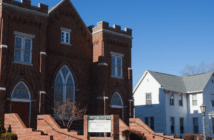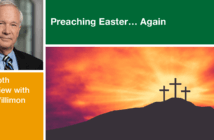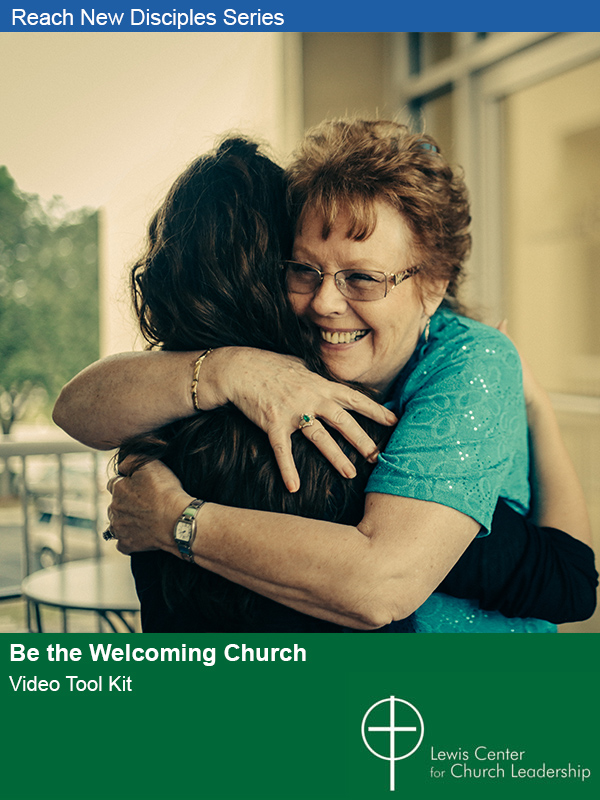In his book The Kaleidoscope Effect, Scott Chrostek says permanent, static programming doesn’t work with emerging generations. He describes how Resurrection Downtown in Kansas City has succeeded in drawing Millennials into small groups by constantly adapting their approach.
The Millennials I meet aren’t necessarily looking for the church to have a place to worship, receive the sacraments, and grow in faith; they are looking to make quality friends — friends who share a similar worldview or set of values. At Resurrection Downtown in Kansas City, we attempt to adapt our programming to meet them where they are in the hopes that they will experience God through these relationships.
To lead the emerging generations, we must exude an affinity for change, adaptation, and innovation. We must constantly find ways to improve our ministries. We must be willing to try new things all the time.
“Arranged marriages” that failed
Initially, we collected the names and numbers of anyone who expressed a desire for meaningful relationships. We organized these individuals to connect on a weekly basis to share life with others in groups of eight to twelve. Within a short period of time, we had launched several small groups involving over one hundred individuals. We thought we had succeeded, until they told us we hadn’t. People began to share with us how they weren’t sure they liked the people they had just committed to do life with. Slowly but surely, these small groups, created to meet the needs of our community, were unraveling. Our “arranged marriages” were ending in divorces all over the place, and what we had thought was working no longer seemed to be doing so.
Low-commitment community groups
So, we adapted. We tried to create a low-commitment approach to community life that would allow for relationships and friendship to emerge naturally. Every two weeks, we launched a “community group” — a short-term study (Bible or book), with a definite start and stop that spanned anywhere between four and six weeks. Anyone could drop in, sign up, drop out, or walk away at any point in time. We invited people to consider them as a way of drawing nearer to God in study and to each other in conversation.
People would choose to attend a group because of its convenient location, its start time, the study material, or simply because of right “timing.” By launching these groups every two weeks, we always had something new to offer anyone desiring to become a bigger part of the community.
Over the course of that next year, our community groups thrived. In some cases, people developed friendships so quickly that they’d skip another community group and express an interest in forming a new small group. In short order, we began forming new small groups, only this time they were authentic or organic in their origin.
Young and [un]Professional
We learned that while many Millennials desire to be surrounded by multiple generations, there is also a strong subset who longed to meet people their own age. In response, we launched a group entitled Young and [un]Professional or “Yups” for short. Anyone who was under the age of thirtyish was invited to join this weekly community group that gathered around a book or topic-driven lesson that would eventually move toward a social outing, dinner, or coffee. From the outset, this group gained momentum quickly. But eventually, many of the young adults who had built relationships opted to graduate from Yups by forming or joining small groups or leaving altogether. And just like that, what had once been working stopped.
Constant adaptation
And so, we adapted again. The next thing we tried was to form sports teams that were led and managed by our young adult small groups. We also launched a dinner club for young adults that met twice a month to try out the best restaurants in the community. We also formed a mission team and mission opportunities geared specifically for young adults so that we could meet people in soup kitchens, rebuild old homes, tend gardens, or pick up trash throughout the city.
We tried numerous new things to see what would connect. And whenever things didn’t, we would simply turn or change directions. Our multiple failures didn’t stop us from adapting or rotating just slightly to stumble upon or create the next beautiful thing. Most recently, we have put together a group called 20/30, and it is hosted primarily on social media, but points people to regular get-togethers ranging from coffee hours 15 minutes before or after worship services to dialogue and discussion on theology, literature, and race. This virtual group has paved the way for a variety of connection points managed in one place in the hopes of meeting as many people possible both within the church and outside it. How long will it last? I don’t know, but for now, it is hitting the right note. When it ceases, we’ll simply adapt.
This material is adapted from Scott Crostek’s book The Kaleidoscope Effect: What Emerging Generations Seek in Leaders (Abingdon Press, 2017). Used by permission. The book is available at Cokesbury and Amazon
Related Resources
- “The Kaleidoscope Effect: What Emerging Generations Seek in Leaders,” a Leading Ideas Talks podcast featuring Scott Chrostek
- Welcoming Millennials by Preserving Their Anonymity by Scott Chrostek
- 5 Keys to Cultivating an Environment Irresistible to Emerging Generations by Scott Chrostek







